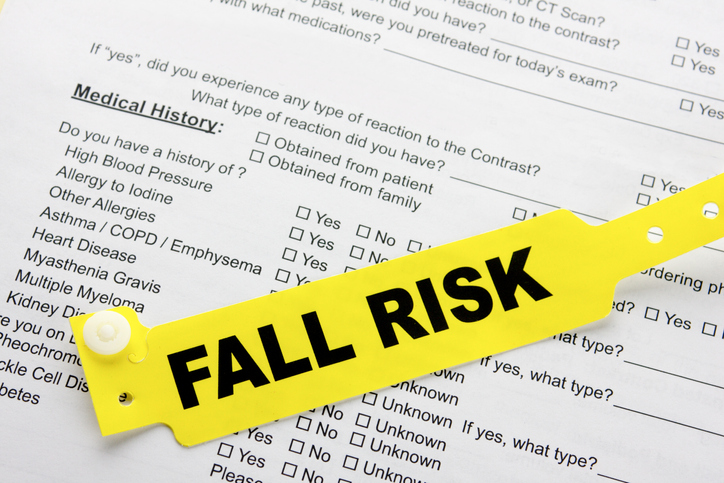As we work with clients on survey readiness, we’re noticing some organizations haven’t updated their Sentinel Event policy to include the Joint Commission definition of falls as sentinel events. The new definition went into effect January 1, 2021. Here’s what you need to know about it.
Why Include Falls as Sentinel Events?
The purpose for TJC including a definition of a fall as a sentinel event is to help organizations understand whether a fall qualifies for review as a sentinel event. Thus, it doesn’t mean that every fall is automatically a sentinel event. Specifically, only those falls that meet the Joint Commission definition would qualify as sentinel events.
Most importantly, falls with injury are a significant patient safety problem. Falls with serious injury are consistently among the top ten sentinel event reports to TJC.
TJC Definition of Fall as a Sentinel Event
The Joint Commission definition of a fall as a sentinel event is as follows:
“A fall resulting in any of the following: any fracture; surgery, casting, or traction; required consult/management or comfort care for a neurological (for example, skull fracture, subdural or intracranial hemorrhage) or internal (for example, rib fracture, small liver laceration) injury; or a patient with coagulopathy who receives blood products as a result of the fall; death or permanent harm as a result of injuries sustained from the fall (not from physiologic events causing the fall).”
Clearly, with this definition of a “sentinel event fall,” there could be many falls in a behavioral health setting that would qualify as “incidents” but not sentinel events. At the same time, there could also be falls that do indeed meet the definition for a sentinel event.
Definition of a Fall
Aside from determining if a fall qualifies as a sentinel event, there is the basic question of: What is the definition of a fall?
The World Health Organization defines a fall as “an event which results in a person coming to rest inadvertently on the ground or floor or other lower level.”
TJC has the following FAQ on this topic:
Question: Does The Joint Commission provide an official definition of a patient “fall” or does each organization need to define it?
TJC Response: “No, The Joint Commission does not have an official definition of a ‘fall”. However, a uniform definition is needed throughout the organization. Organizations are encouraged to check national guidelines and to check with their state to determine if any law/regulation exists defining a fall within the individual state. The organization should choose a definition appropriate for the patient/client population served. For consideration, a fall may be described as an unintentional change in position coming to rest on the ground, floor, or onto the next lower surface (e.g. onto a bed, chair or bedside mat). The fall may be witnessed, reported by a patient, an observer, or identified when the patient is found on the floor or ground. Falls include any fall whether it occurred at home, out in the community, in an acute hospital, or ambulatory setting.”
What to Do Now
If you haven’t updated your Sentinel Event policy, now is the time to do so. Share the revised definition with your leaders and managers so they’re aware of the change.
Then, when a fall occurs, you’ll need to review it against this new definition to determine if it qualifies as a sentinel event. If so, you must conduct a root cause analysis (RCA.)
Be aware that reporting sentinel events to TJC is voluntary. However, accredited organizations must still conduct an RCA – even if they do not report the event to TJC.
In addition, it’s important to remember that an RCA must include actions that would help prevent a similar occurrence in the future. Those actions then need to have responsible parties and timelines for completion.
Over the years, we’ve found many organizations do a decent job on the front end of completing the RCA. However, the follow-up on action items is often weak. So, remember to keep your RCA follow-up high on your QAPI radar and close the loop on corrective actions.
Resources
See the Joint Commission website for info and resources on sentinel events.
Also, take a look at Sentinel Event Alert 55 Preventing Falls and Fall-Related Injuries in Health Care Facilities. It’s from 2015 but the information and recommendations in this Alert are still highly relevant.
Barrins & Associates Consultation
We’re back out in the field doing Mock Surveys and Survey Readiness Consultations. We’ve incorporated all the new 2021 requirements and protocols to help you maintain continuous survey readiness.


